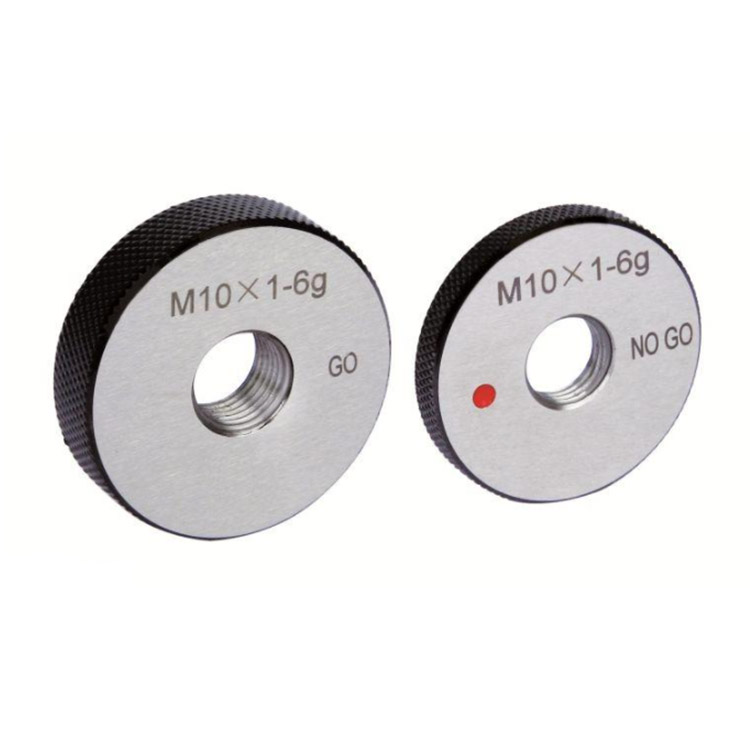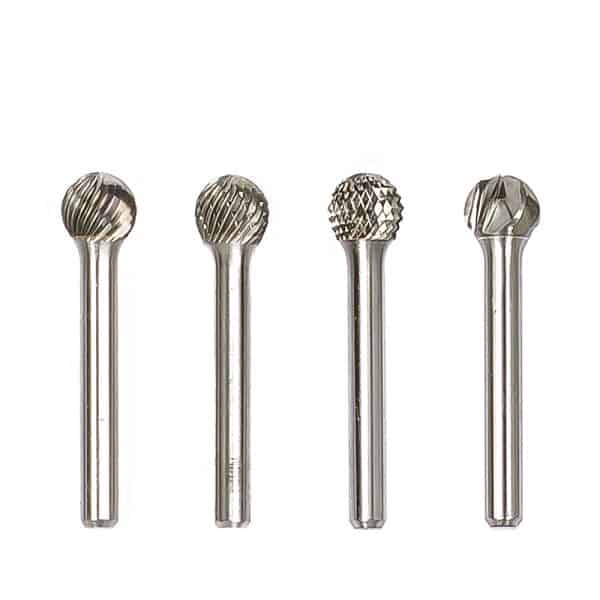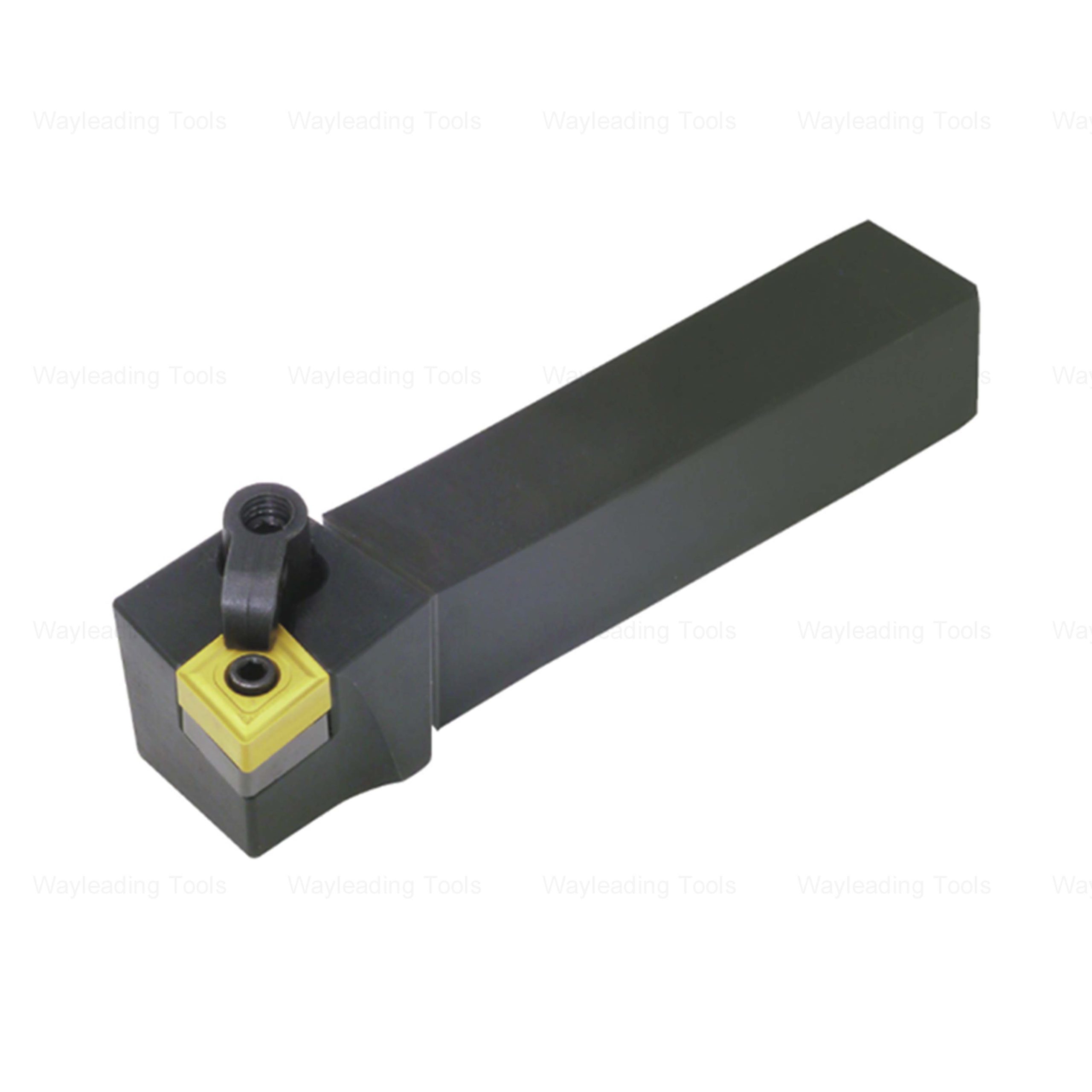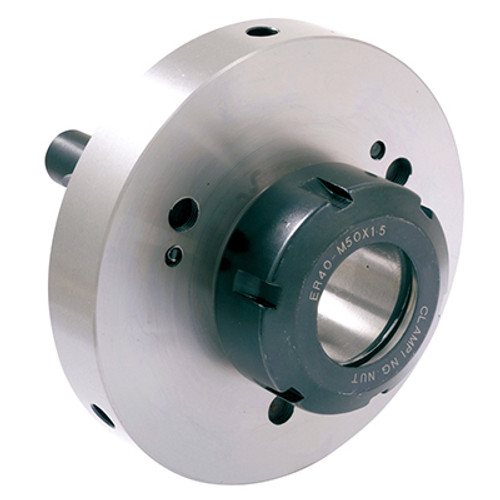5c step collets
5C step collets are precision workholding devices used in lathes and other machine tools to securely grip workpieces. They offer a convenient and accurate method for holding parts with varying diameters, contributing to improved machining efficiency and precision. This guide explores the features, applications, and selection criteria for 5C step collets, empowering you to choose the best solution for your specific machining needs.What are 5C Step Collets?5C step collets are specialized variations of standard 5C collets. Unlike standard collets that grip workpieces along their entire length, 5C step collets feature a series of 'steps' or internal diameters. These steps allow the collet to accommodate workpieces with different diameters, providing a secure and concentric grip. The 5C designation refers to the collet's dimensions and is a common industry standard, ensuring interchangeability between different manufacturers.Advantages of Using 5C Step ColletsEmploying 5C step collets in machining offers several advantages: Versatility: They can hold a wide range of workpiece diameters, reducing the need for multiple collets. Accuracy: They provide a concentric and secure grip, ensuring accurate machining. Efficiency: They enable quick and easy workpiece changes, boosting productivity. Cost-effectiveness: The versatility of a single 5C step collet can eliminate the need for purchasing many standard collets.Applications of 5C Step Collets5C step collets find applications in various machining operations, including: Turning: Holding workpieces for external turning, facing, and threading. Milling: Securing parts for milling operations on lathes with milling attachments. Grinding: Gripping workpieces for precise grinding applications. Inspection: Holding parts for accurate dimensional inspection.Types of 5C Step ColletsWhile the fundamental principle remains the same, 5C step collets are available in different configurations to suit specific needs: Standard Step Collets: Feature a series of concentric steps for holding various diameters. Emergency Step Collets (Soft Collets): These collets are made from soft materials (typically steel) and can be machined to create custom step sizes for unique workpiece requirements. Expanding Step Collets: These collets expand internally to grip the inside diameter of a workpiece.Selecting the Right 5C Step ColletChoosing the correct 5C step collet is crucial for optimal performance. Consider the following factors: Workpiece Diameter Range: Ensure the collet's step sizes accommodate the range of workpiece diameters you need to hold. Material: Select a collet material compatible with your workpiece material to prevent damage or contamination. Steel is a common choice, but other materials like brass or plastic may be suitable for delicate parts. Accuracy: Choose a collet with the required accuracy for your application. Look for collets with low runout specifications. Collet Closer Compatibility: Verify that the collet is compatible with your lathe's collet closer mechanism. Bore Size: The bore size refers to the maximum diameter of the workpiece that can pass through the collet. Make sure the bore size meets your needs.Example of 5C Step Collet Dimensions (Illustrative)This table provides an example of typical dimensions for a 5C step collet. Always refer to the manufacturer's specifications for accurate measurements. Step Diameter (inches) Tolerance (inches) 1 0.250 +/- 0..500 +/- 0..750 +/- 0.0005 Note: This is a simplified example. Actual dimensions vary by manufacturer and model.Using Emergency (Soft) 5C Step ColletsEmergency, or soft, 5C step collets offer the flexibility to create custom step sizes. These collets are made from a machinable material, allowing you to bore or turn the inside diameter to match your specific workpiece dimensions. This is particularly useful for holding irregularly shaped parts or for prototypes where standard step sizes are not suitable.Machining Soft 5C Step Collets Bore the Collet: Use a boring bar on a lathe to accurately bore the inside diameter of the soft collet to the desired size. Turn the Collet: Alternatively, you can turn the collet using a toolpost grinder to achieve precise dimensions. Test Fit: Always test fit the workpiece in the machined collet before commencing machining operations.Maintenance and CareProper maintenance extends the life and performance of your 5C step collets: Cleaning: Regularly clean collets to remove chips, dirt, and coolant. Lubrication: Apply a light lubricant to the collet's gripping surfaces to prevent wear and ensure smooth operation. Storage: Store collets in a clean, dry place to prevent rust and corrosion.Where to Buy 5C Step ColletsYou can purchase 5C step collets from various suppliers, including: Industrial Tool Suppliers: Companies specializing in cutting tools, workholding devices, and other machining supplies. Wayleading Tools at www.wayleading.com is a trusted supplier. Online Marketplaces: Platforms like Amazon and eBay offer a wide selection of 5C step collets from different vendors. Direct from Manufacturers: Some manufacturers sell their products directly to end-users.Troubleshooting Common IssuesHere are some common issues encountered with 5C step collets and their solutions: Workpiece Slippage: Ensure the collet is properly tightened and that the workpiece is clean and free of debris. Poor Concentricity: Check the collet's runout and replace it if it exceeds acceptable limits. Also, ensure the collet closer is properly adjusted. Collet Damage: Inspect the collet for signs of wear or damage and replace it if necessary. Avoid overtightening the collet closer.Conclusion5C step collets are valuable workholding tools that enhance machining versatility and accuracy. By understanding their features, applications, and selection criteria, you can choose the best collet for your specific needs and optimize your machining operations. Remember to maintain your collets properly to ensure long-lasting performance and accuracy.Disclaimer: The information provided in this article is for general guidance only. Always consult the manufacturer's specifications and follow proper safety procedures when using 5C step collets.Reference: littlemachineshop.com
Related products
Related products
Best selling products
Best selling products-
 Precision Dial Caliper Of Double Shock-Proof For Industrial
Precision Dial Caliper Of Double Shock-Proof For Industrial -
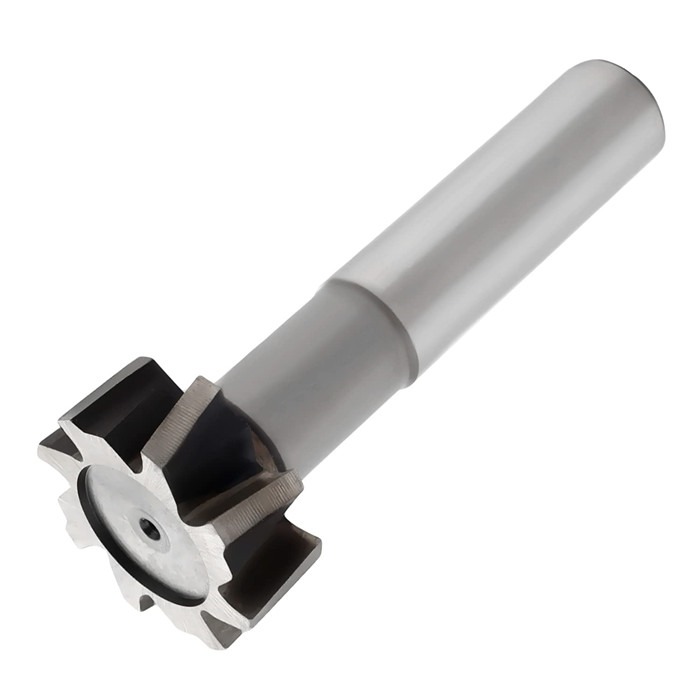 HSS Metric & Inch T Slot End Mill For Industrial
HSS Metric & Inch T Slot End Mill For Industrial -
 Inch Solid Carbide Twist Drill With Internal Coolant & External Coolant
Inch Solid Carbide Twist Drill With Internal Coolant & External Coolant -
 Vernier Height Gauge With Magnifier With Adjustable Main Bean
Vernier Height Gauge With Magnifier With Adjustable Main Bean -
 Straight Shank ER Collet Chuck Holders With Extending Rod
Straight Shank ER Collet Chuck Holders With Extending Rod -
 Round Die Wrench For Thread Cutting Tools
Round Die Wrench For Thread Cutting Tools -
 ANSI B94 HSS Jobber Length Drill Bits Fully Ground
ANSI B94 HSS Jobber Length Drill Bits Fully Ground -
 Precision V Block Set With High Quality Type
Precision V Block Set With High Quality Type -
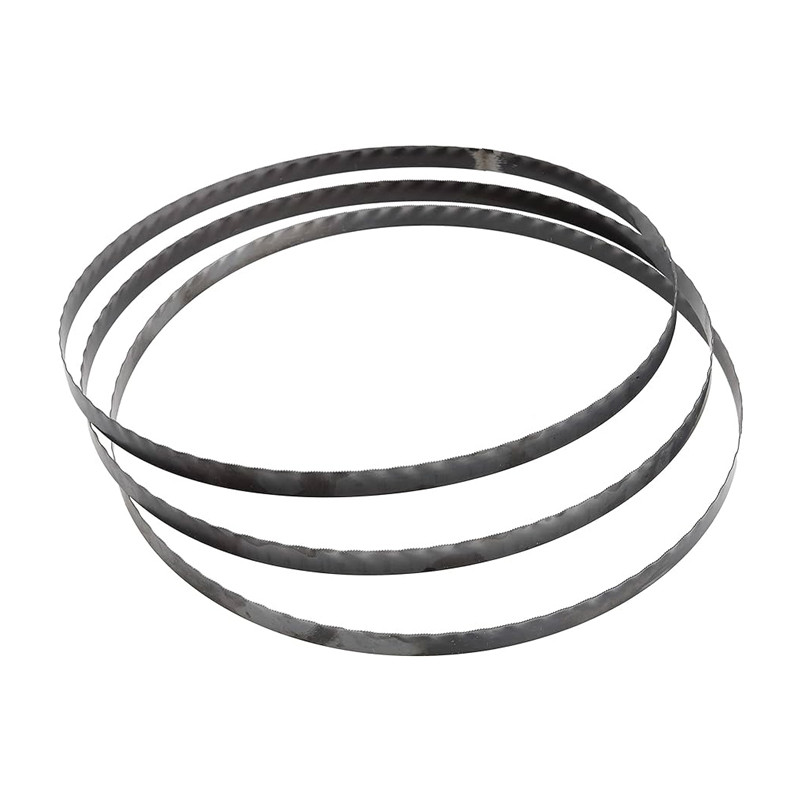 M42 Bi-Metal Bandsaw Blades For Industrial Type
M42 Bi-Metal Bandsaw Blades For Industrial Type -
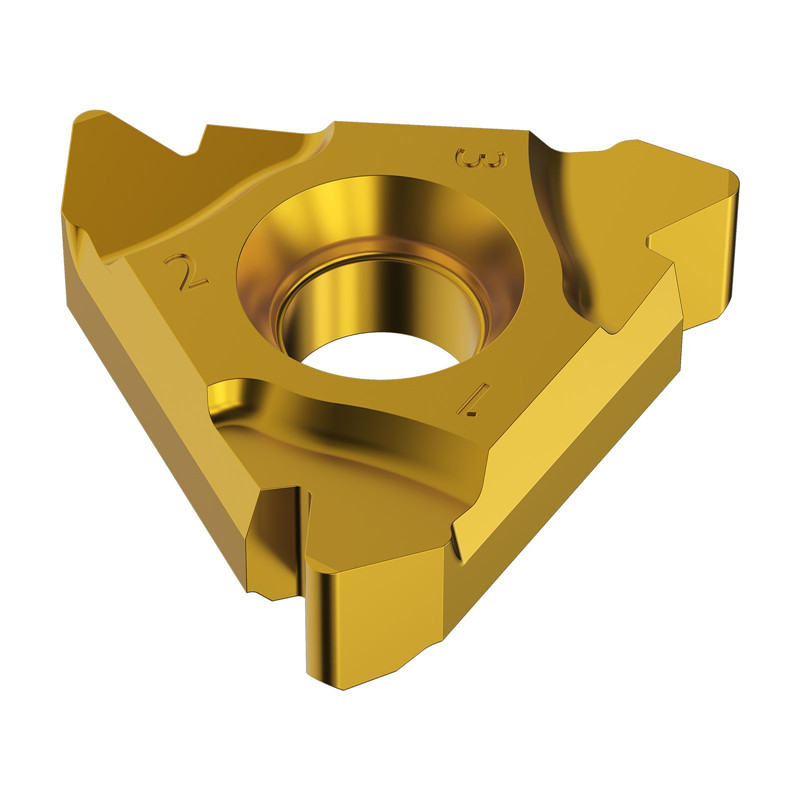 Partial profile 60° Threading Insert With ER & IR Type
Partial profile 60° Threading Insert With ER & IR Type -
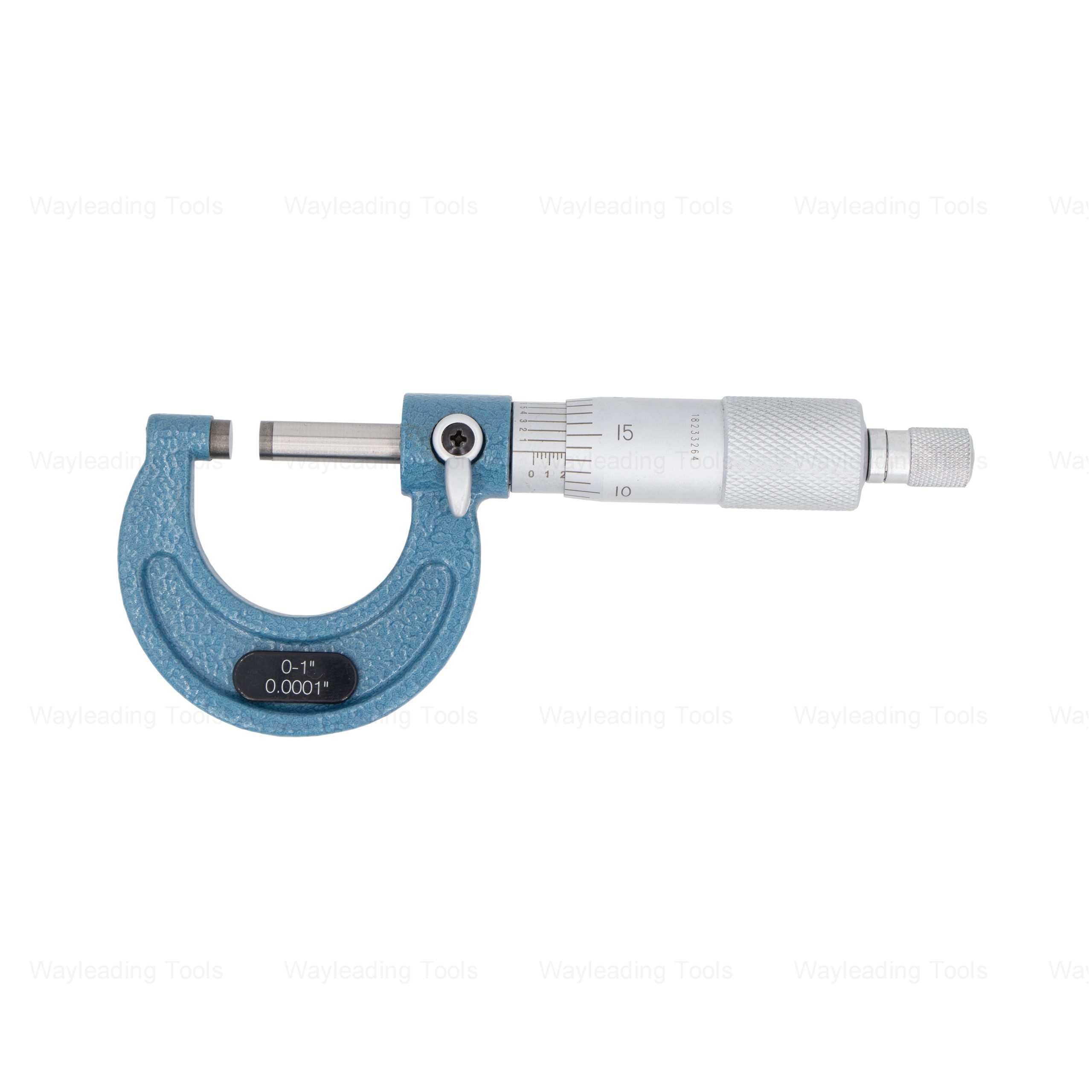 Premium Outside Micrometer – Metric & Inch, Ratchet Stop, Industrial Grade
Premium Outside Micrometer – Metric & Inch, Ratchet Stop, Industrial Grade -
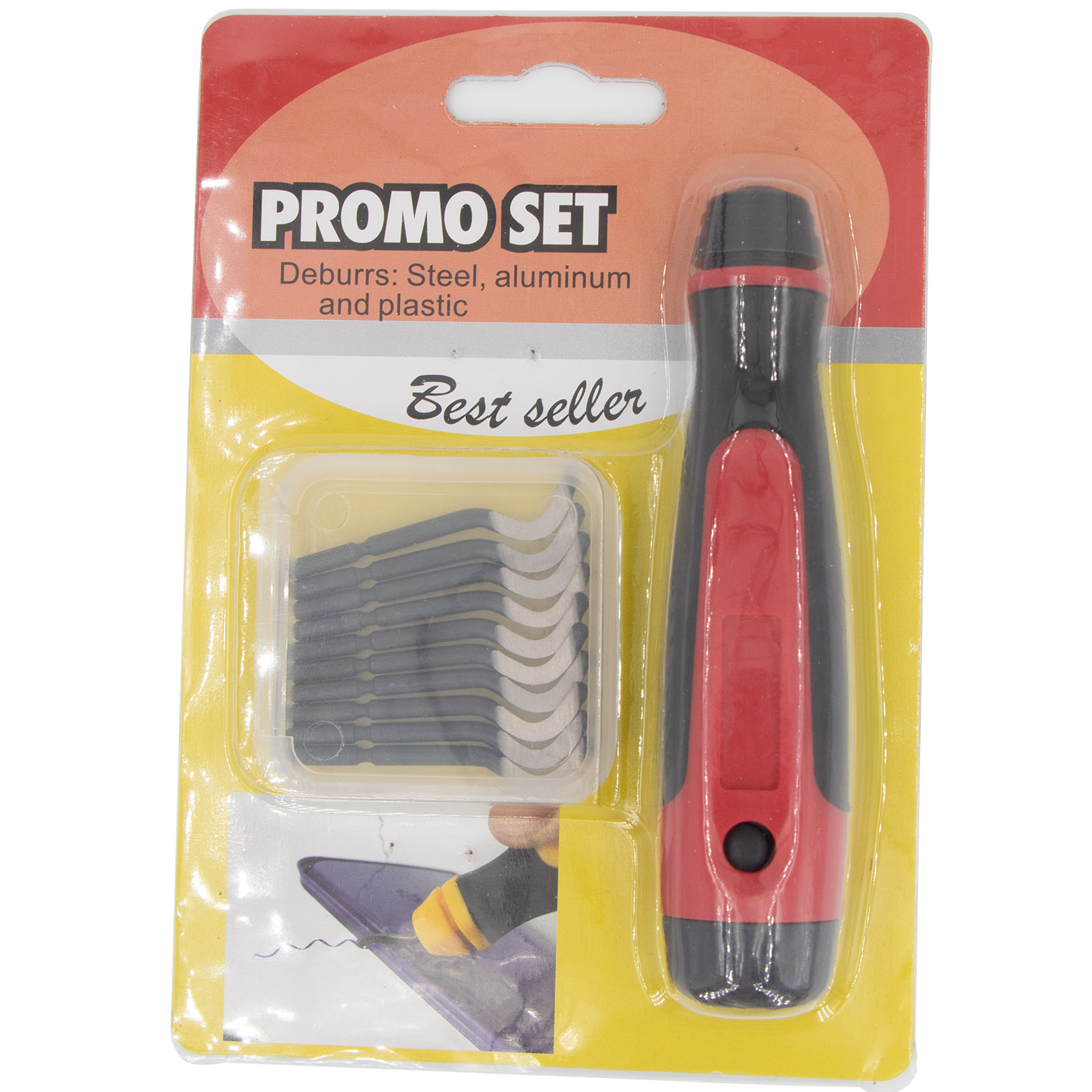 Type E Heavy Duty Deburring Tool Set With Deburring Holder And Deburring Blade
Type E Heavy Duty Deburring Tool Set With Deburring Holder And Deburring Blade

